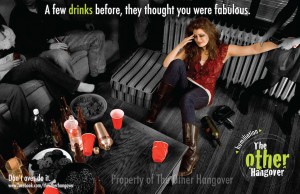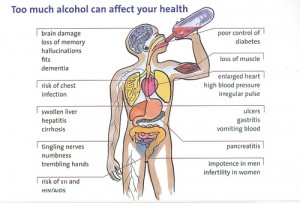An article in the UK’s daily mail this week has revealed a shocking trend: More and more, children are being admitted to hospitals with alcohol problems. According to the report, dozens of children under the age of 10 have been hospitalized for mental and behavioral disorders due to alcohol abuse.
In the United States, alcohol is the drug of choice among youth. Each year, approximately 5,000 people under the age of 21 die as a result of underage drinking. Nationwide surveys report that two in every five eighth graders have consumed alcohol. And when youth drink, they tend to drink in binges. Binge drinking is defined as having four or five drinks in a sitting.
Adolescent alcoholism is a growing problem. Kids are experimenting with alcohol at earlier ages than ever before. Today, the average age an American girl has her first drink is 13; for a boy, it’s 11. Some researchers think that later life addiction is more common in early drinkers because the impulse control centers are not yet developed in teen brains. In other words, teens are not able to make sound decisions. People who have their first drink at 14 or younger are six times more likely to develop alcohol problems.
Adolescent alcoholism is development of alcohol addiction any time between the ages of 11 and 19. About 10-15 million people in the United States alone can be classified as alcoholics. About 4.5 million of them are adolescents.
Recent studies suggest that the brain continues to develop through age 25. Adolescent alcoholism can affect the brain’s development. Subtle changes in the brain may be difficult to detect but still have a significant impact on long-term thinking and memory skills.
Adolescent Alcoholism: What can parents do?
Studies show that having open and honest talks with your child can decrease the risk of adolescent alcoholism. Many parents think that emptying the liquor cabinets is a good idea, but you can’t go around town emptying all the liquor cabinets, so it’s important that you talk to your kids about alcohol abuse.
Also, keep in mind that the younger the age of exposure, the more likely your child will develop adolescent alcoholism or alcoholism later in life. Many people think it’s fine, and preferable, given the drinking saturated culture we live in, for teens to have their first sips early and at home, under their parents supervision. They figure that their kids are going to do it anyway, so they may as well do it at home where they will be “safe.” 1/3 of third graders report having tried beer, wine, or hard liquor at home.
However, given what we know about how early onset drinking is a primary risk factor for adolescent alcoholism and other alcohol and drug related problems, experts advise delaying exposure to alcohol for as long as possible. Before a child’s brain is developed, they have underdeveloped “brakes” so if they are exposed to alcohol at this point, they are much more likely to overindulge and develop alcohol problems.
http://pubs.niaaa.nih.gov/publications/AA67/AA67.htm




